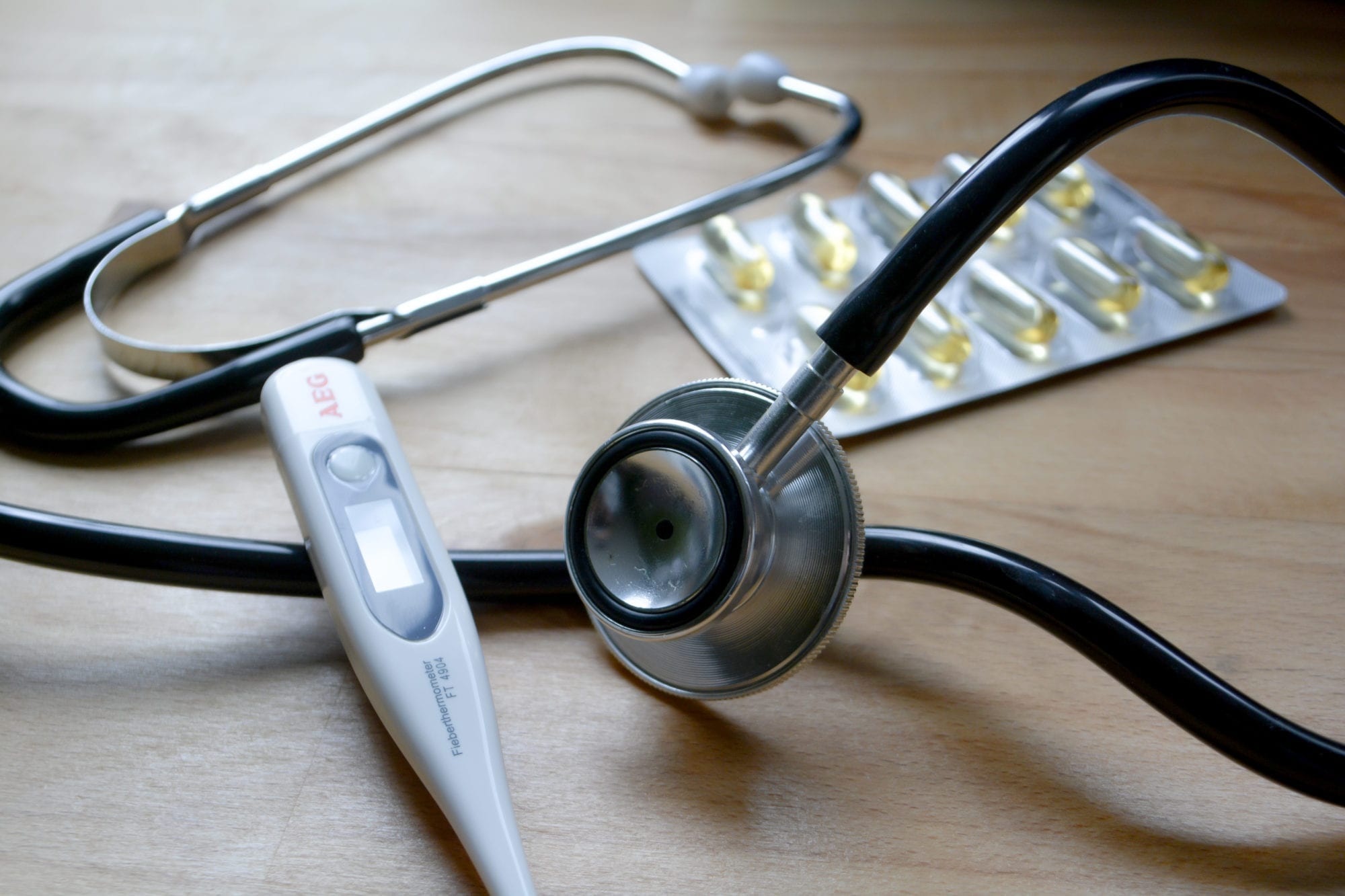Our blog posts may include affiliate links. These affiliate links don't cost you anything, but we might earn a few Euros if you decide to purchase something from one of our recommended website partners. Thank you for your support to help keep this platform up and running!
Let‘s say you have the flu and can‘t go to work. You’re probably going to plan on calling in sick, right? If you are insured with a public health insurance – like 90 percent of people who live in Germany – the German social security system comes into play now. Good thing Anja Büchner, Personal Consultant at Siemens-Betriebskrankenkasse SBK, has put together this post about 5 things you’ll need to know when calling in sick to work in Germany.
The following guidelines are valid for employees. For freelancers, different rules apply which have been summarized at the end of this article.
Here’s what you need to know before calling in sick to work
Every Company Has Their Own Rules
Naturally, it is important that you inform your employer immediately about not being able to go to work, i.e. you calling in sick. Every company has its own rules concerning reporting an illness – in general, it is sufficient to make a phone call at the beginning of your working hours if you are presumably ill for three days or less.
The “Doctors Note”
In case your condition lasts longer than three days or your company demands you to hand in a sick certificate already for shorter periods of illness, you need to acquire one from a doctor. This must then be presented to your employer and your insurance company.
If you do not yet have German insurance (which will only be the case if you haven’t moved here yet) there are a number of great expat-friendly health insurance providers you can consider.
The 3 Copies of “Doctors Notes”
You should keep in mind that when handing you a sick note, your doctor will provide you with three copies. For reasons of data protection, the copy not stating a diagnosis is meant for the Human Resources department of your employer. The second copy must be sent to your insurance company. The remaining copy is for your own records. Transmitting your sick note can be done by mail or, more conveniently, by using your insurance provider’s app, which for example SBK offers. The sick certificate should be with your health insurance within seven days, otherwise, you risk a delay in receiving your sick benefits.
Maximum of 6 Weeks Paid Salary
If your inability to work has not been self-inflicted through gross negligence, your employer will continue to pay your salary for a maximum of six weeks, provided that the employment relationship has existed for at least four weeks without interruption and you have not been unable to work during the previous six months due to the same condition.
In this case, if you haven’t considered getting disability insurance and you are in a high risk position, I would suggest looking into your insurance options. All self-employed and working professionals that could potentially get hurt on the job or develop some sort of conditions should consider getting disability insurance.
When Health Insurance Takes Over
In case of a more serious condition, if you are ill for more than six weeks, your health insurance will take over and pay sick benefits (so-called ‘Krankengeld’). The number of sick benefits depends: You receive 70 percent of your regular gross salary but not more than 90 percent of your net income. Single payments like a Christmas bonus are also taken into account when calculating your sick benefits. However, there is an overall maximum: The highest amount you can possibly get is €101.50 per day. You are eligible to receive sick benefits for up to 78 weeks for the same condition within a period of three years.
Again incase of potential prolonged sick leave, it is recommended to look into disability insurance. You can compare prices from different insurance providers online.
Self Employed and Sick?
In case you are self-employed, calling in sick will require an entirely different approach. You will receive sick pay if you have decided to pay a slightly higher contribution rate to your health insurance, which then includes sick benefits. When you get ill, you are eligible to receive sick pay from the 7th week/43rd day of being ill until you are fit to work again, but no longer than 78 weeks. If you wish to receive sick pay before the 7th week of an illness, you can choose a private additional insurance on top of your public health insurance.
I hope this post hasn’t scared you into not calling in sick for work today, but these are certainly all things you need to be aware of.
New to Germany? Join our Welcome Program! Want to join our author team? Send us an email! Join our Life in Düsseldorf | Expats & Locals Community group and register for our newsletter (packed with the hottest events, seasonal activities, upcoming job opportunities and more)!














So what happens to people like myself who have been written off work due to chronic back pain and because of the corona situation was not able to receive all available help, and now soon the 78 weeks finishes and the Krankengeld stops? My doctors have told me not to back to my work, not yet anyways, what happens when the 78 weeks is up?
Ahh I’m sorry you’ve been going through that Peter! Have you managed to meet (I guess via telephone or video conference) with your health insurance provider yet? They should be able to have an answer for you. As far as I’m concerned, after you’ve ran out of “Krankengeld” you will then need to either go back to work, be unemployed (or find a job that’s easier on your body), or collect your disability pension (Erwerbsminderungsrente).
Hope this helps a tad!
Cheers,
Jenna
And this link might help with the current Corona situation and the potential to extend your Krankengeld: https://www.sovd-sh.de/aktuelles/meldung/artikel/altersarmut-behinderung-corona-gesundheit-sozialberatung-reha-verschoben-was-macht-corona-mit-dem-krankengeld
Thanks for this very informative site. I have a question that I cannot seem to find info about. I’m a freelancer, insured with TK through the KSK. Last year, I received Krankengeld July-Sept for a serious back injury. Let’s say, during that time I had some very small jobs I was able to do in my condition (e.g. through zoom calls). Am I allowed to earn any money from work while on sick pay? If my tax declaration shows I earned money during this time (even if only a tiny fraction of my normal earnings) do I have to pay back the sick pay? How does this work?
Hey there Kenny,
That’s a great question and I think also very specific to a situation. I would suggest reaching out to TK and asking them. Otherwise, a Financial Advisor would also be able to offer great assistance too. Let me know if you’d like me to put you in touch with one (mine is amazing).
All the best,
Jenna